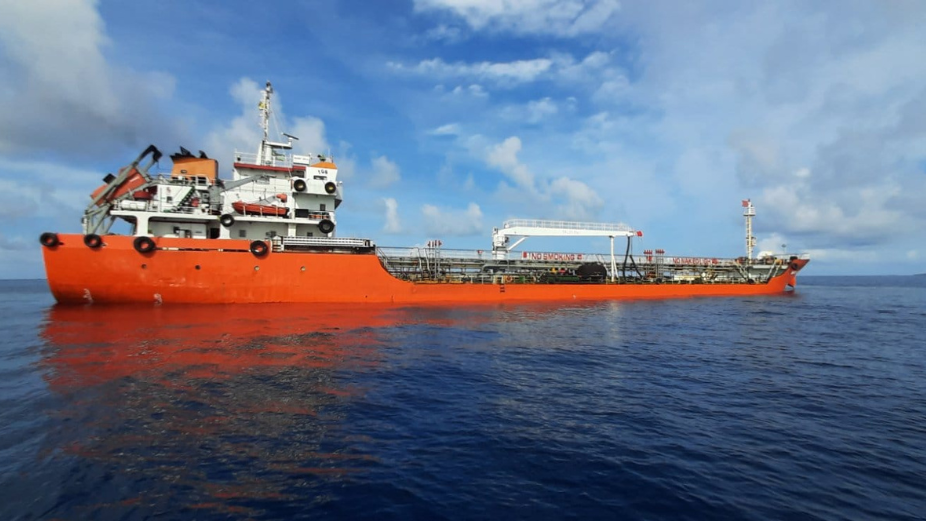
The Maldives is charting a new course in its economic journey. In a bold move to diversify its tourism-dependent economy, the government is launching an international bunkering service, positioning itself as a strategic maritime hub in the Indian Ocean. This initiative, led by the State Trading Organisation (STO) in partnership with Vitol, the world’s largest independent energy trader, signals a transformative shift in the Maldives’ economic landscape.
Anchoring Economic Diversification
For decades, the Maldivian economy has been buoyed by tourism, a sector that, while lucrative, leaves the nation vulnerable to external shocks, be it global recessions or pandemics. The International Monetary Fund (IMF) has highlighted the urgency for the Maldives to diversify its revenue streams to ensure sustainable growth and economic resilience. Responding to this clarion call, the government has unveiled an ambitious plan to tap into the maritime industry, with bunkering services at its helm.
The bunkering initiative is not merely about refuelling ships; it represents a strategic endeavour to integrate the Maldives into the global maritime trade network. By supplying fuel to marine vessels traversing the busy shipping lanes of the Indian Ocean, the Maldives aims to capture a share of a lucrative market historically dominated by regional players like Sri Lanka and India.
Strategic Partnership with Vitol
On 13th March, STO formalised its partnership with Vitol through a term sheet agreement, marking a significant milestone in realising the bunkering project. Vitol’s expertise and global network bring credibility and operational excellence to the venture, enhancing the Maldives’ prospects in the competitive bunkering industry.
STO will serve as the physical supplier, ensuring the availability of low-sulphur fuel oil and gasoil at the Ihavandhippolhu Atoll, the designated site for the bunkering hub. The initial operations are set to commence offshore, utilising two oil tankers with a capacity of 4,000 tonnes each—the Marine Angel and Marine Bella—both now docked near Kulhudhuffushi City.
Ihavandhippolhu Atoll: The Maritime Gateway
The choice of Ihavandhippolhu Atoll is a strategic masterstroke. Located near the eight-degree channel, the atoll lies adjacent to two major international shipping routes. Its proximity to these maritime arteries makes it an ideal location for vessels in need of refuelling and other maritime services.
The geographical advantages extend beyond location. The atoll’s calm seas and shallow waters facilitate convenient bunkering for ships of various sizes, offering a safe harbour for maritime activities. Recognising its potential, the government has designated Ihavandhippolhu as the Maldives Economic Gateway, envisioning it as a nexus for international port facilities, strategic oil terminals, and a hub for marine services.
Economic Windfall on the Horizon
The government projects that the bunkering service will inject an additional USD 400 million into the nation’s Gross Domestic Product (GDP), currently standing at USD 6.5 billion. This infusion represents a significant economic windfall, potentially creating a multi-million dollar industry in the country..
Beyond direct revenue, the bunkering hub is poised to stimulate ancillary sectors such as shipping, logistics, and tourism. Job creation is a tangible benefit, offering employment opportunities within a competitive sector and contributing to socio-economic development in the region.
Maritime Services Expansion
The Maldives Ports Limited (MPL) is integral to the broader vision, preparing to offer 14 maritime services under the North Maritime Service. According to MPL’s CEO, Mohamed Wajeeh Ibrahim, these services will include pilotage, crew changes, provisioning of food and beverages, maintenance, and tug services.
Moreover, the government is not resting on its laurels. Plans are underway to dredge the reef of Hoarafushi to develop an oil terminal and a container terminal meeting international standards. A terminal catering to deep-sea maintenance services is also on the horizon, alongside efforts to establish a dockyard on Ihavandhoo Island.
In Uligan, an island frequented by yachts, there are endeavours to create a yacht marina, with six parties expressing interest. The development of a cruise terminal further underscores the Maldives’ commitment to becoming a multifaceted maritime hub.
Navigating Competitive Waters
While the prospects are promising, the Maldives faces stiff competition from established bunkering hubs in the region. Sri Lanka and India have long dominated bunkering services in the Indian Ocean, and carving out market share will require strategic acumen.
However, the Maldives holds certain competitive advantages. Its strategic location offers a natural stopping point for vessels, and the promise of reliable, efficient services could entice ship operators seeking alternatives. Additionally, the collaboration with Vitol lends a degree of confidence and reliability that could sway market dynamics in the Maldives’ favour.
Environmental and Operational Considerations
The expansion into bunkering and maritime services is not without its challenges. Environmental considerations loom large, given the Maldives’ fragile ecosystem and the global emphasis on sustainable practices. Implementing stringent environmental safeguards will be crucial to mitigate potential adverse impacts.
Operationally, ensuring that infrastructure developments meet international standards is imperative. The government and STO must invest in state-of-the-art facilities, robust regulatory frameworks, and skilled personnel to deliver on their ambitious plans.
A New Chapter in the Maldives’ Economic Narrative
The launch of the international bunkering service will mark a significant milestone in the Maldives’ quest for economic diversification. The nation’s ability to capitalise on its strategic location and natural advantages could redefine its role in global maritime trade.
By embracing the maritime industry, the Maldives is signalling a shift towards a more resilient and diversified economic model. The journey ahead will require navigating complex competitive landscapes and addressing environmental and operational challenges. Yet, the potential rewards, in economic growth, job creation, and enhanced global standing, make it a voyage worth undertaking.
As the first vessel, the YC Barrier operated by Maldives State Shipping, receives its fuel locally instead of refuelling in Sri Lanka, a new era dawns for the Maldives. The success of this initiative will hinge on sustained commitment, strategic partnerships, and the nation’s ability to deliver reliable services that meet international expectations.
In the grand tapestry of the Maldives’ history, the move towards establishing itself as a key maritime hub could be a defining thread, one that weaves together economic prosperity with national resilience. Only time will tell how this ambitious endeavour will reshape the nation’s destiny, but the sails are set, and the Maldives is charting a bold new course into the future.












